You may have heard that Episcopalians can believe anything they like – this is not true. While the Episcopal Church is very diverse and many people, some from a variety of other Christian traditions, find the Episcopal Church is wide enough for them to be comfortable, we do have a core set of beliefs:
One of the best resources for investigating what Episcopalians believe is the Book of Common Prayer, particularly the Nicene Creed (page 326), the Apostles’ Creed (page 53), and the Catechism (pages 845-862). These outline the core tenets of the Christian faith as understood by the Episcopal Church. A brief overview of some of these beliefs is found below.
We believe in one God, often described in the Bible as the God of Abraham, Isaac, and Jacob. (This is the same God worshipped by Muslims and Jewish people, which is why Judaism, Christianity, and Islam are sometimes called the Abrahamic faiths.)
We believe that a teacher from first-century Palestine named Jesus of Nazareth is the Son of God. This means that he was born of the Virgin Mary, the Mother of God, and that he is both fully human and fully divine. We believe that by the act of becoming human and by his death and resurrection, Jesus has freed us from the power of sin and made death an impermanent state.
We believe in the doctrine of the Trinity, or one God in three Persons, traditionally expressed as the Father, the Son, and the Holy Ghost (or Holy Spirit). The Athanasian Creed (page 864 in the Book of Common Prayer) explains that “We worship one God in Trinity, and Trinity in Unity, neither confounding the persons, nor dividing the substance. For there is one Person of the Father, another of the Son, and another of the Holy Ghost. But the Godhead of the Father, of the Son, and of the Holy Ghost, is all one.”
The Episcopal Church shares a theological heritage with the Church of England, as do a number of other Churches worldwide. Together these Churches form the Anglican Communion, whose member Churches are independent entities but share a historic Anglican identity. We are both a Church of the Reformation and are descended from the early apostolic Church in the same way as the Roman Catholic and Orthodox Churches. We do not recognize a single earthly or institutional authority as head of the Church.
One of Anglicanism’s foundational theologians, the sixteenth-century scholar Richard Hooker, outlined three sources of authority on faith that Churches in the Anglican Communion still refer to today. These sources are Scripture, tradition, and reason. Scripture is the first and primary source of authority, and is interpreted with the help of tradition and reason.
Holy Scripture, often called the Bible, consists of the Old and New Testaments. We sometimes call Holy Scripture the Word of God because we believe that God inspired its human authors, and that God still speaks to us through Scripture today. We understand the Holy Scriptures through prayer, study, and the guidance of the Holy Spirit.
Tradition refers to the history of the Church and the practices, beliefs, and understanding of Christians who came before us. While we recognize that it is sometimes necessary for these practices and understandings to change, we also believe that there is value in the Church’s two thousand year history, and that it can be helpful to examine how our ancestors in the faith interpreted Scripture and discussed questions of faith.
Reason is our own God-given intellect, grounded in Scripture and tradition. We each build a relationship with God, understood through our own experiences.
We participate in a number of rituals known as sacraments, which are outward and visible signs of spiritual grace. Grace is God’s love, which is given to us unreservedly and without us doing anything to earn it. As the Catechism says, “By grace God forgives our sins, enlightens our minds, stirs our hearts, and strengthens our wills.”
The most regular sacrament we participate in is Holy Eucharist, which Jesus commanded us to observe regularly in remembrance of his life, death, and resurrection. The service of Holy Eucharist is typically the main service celebrated on Sundays. Other sacraments and sacramental rites include Holy Baptism (the sacrament by which someone becomes a Christian), confirmation, ordination, holy matrimony, reconciliation, and unction. (For more information on these, please see pages 860-861 in the Book of Common Prayer.)
We believe that people of all genders and sexualities have the right to participate in the life of the Church, as equals. The sacraments are open to baptized Christians of all genders and sexualities.
We believe the duty of all Christians is to follow Jesus Christ, who commanded us to love one another as he loved us; to come together regularly for worship; and to work and pray for the Kingdom of God, which brings us in harmony with God, our neighbors, and creation. Our assurance as Christians is that nothing, not even death, can separate us from God and from God’s love.
The Episcopal Church strives to foster a culture of inquiry and discussion, and there is room within the Church for a variety of interpretations and beliefs. Faith is not static. If you’re curious, come give us a visit. We’d love to see you on Sunday.
For further reading, you are welcome to explore the Episcopal Church’s national website and the Book of Common Prayer.

